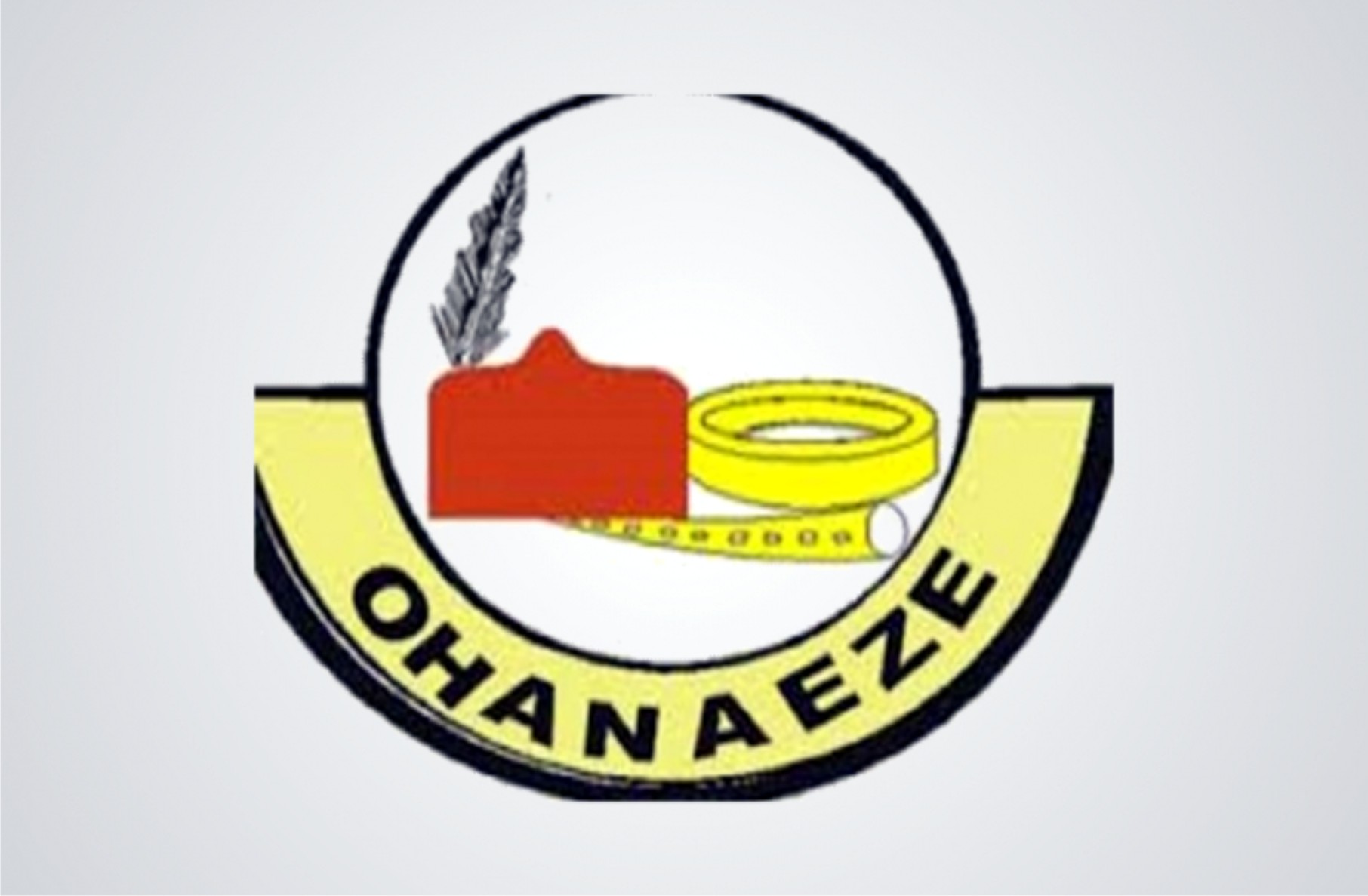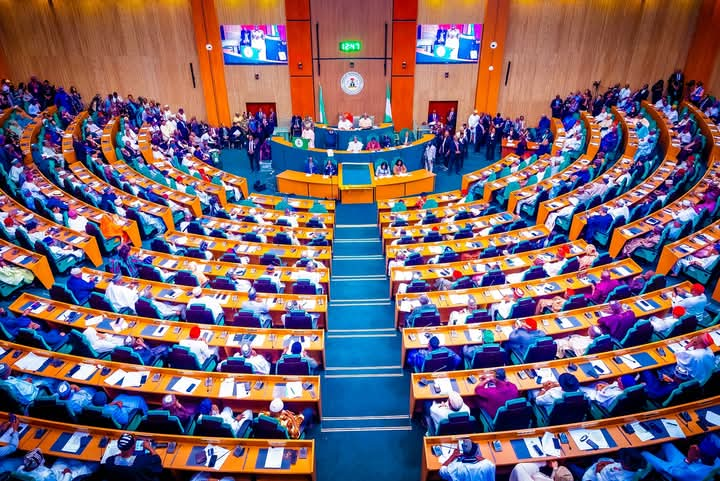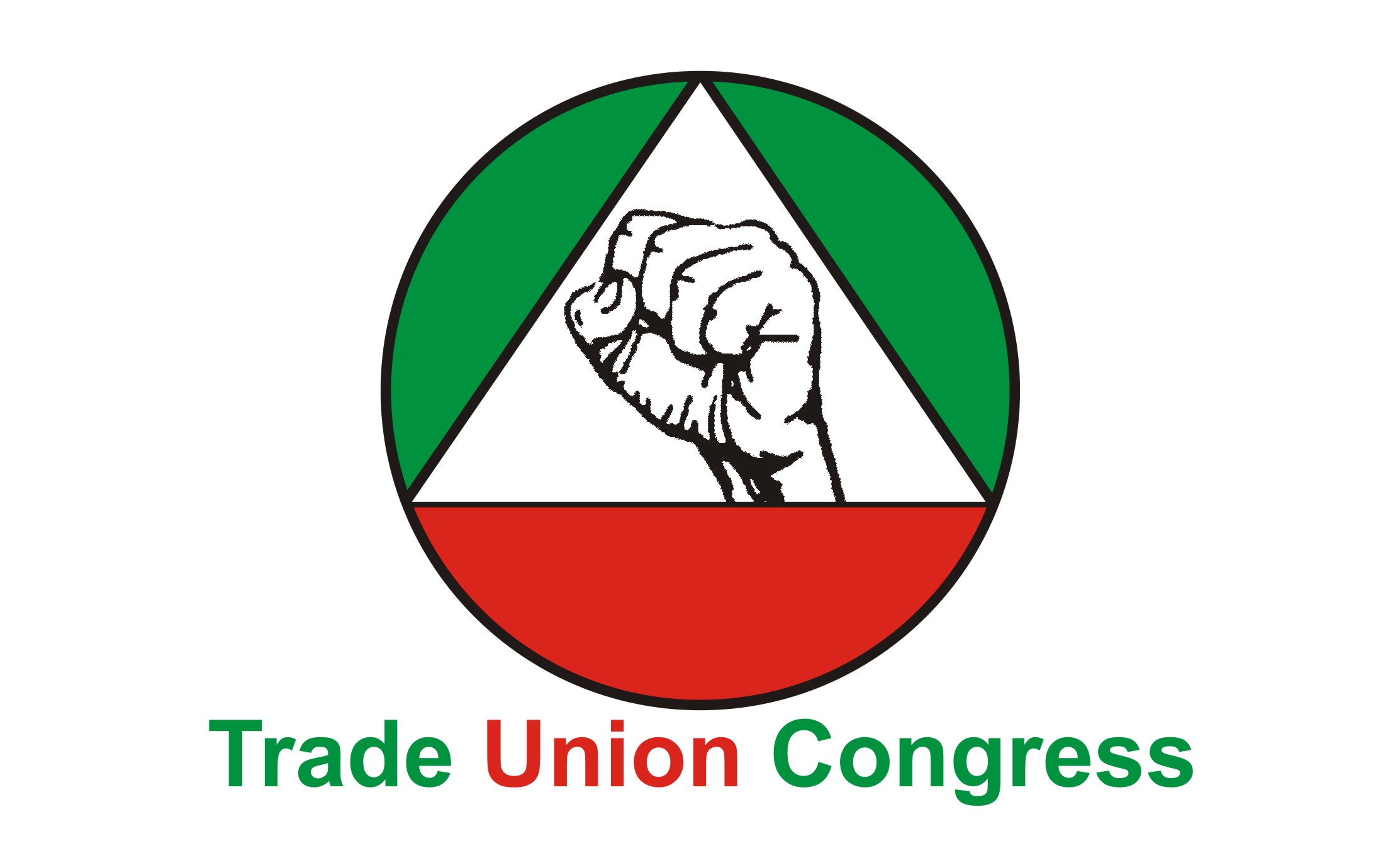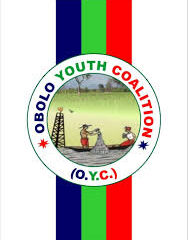Featured
Ohanaeze President-General Passes On Buhari, Obasanjo, Jonathan, Others Mourn

President-General of the apex Igbo socio-cultural organisation, Ohanaeze Ndigbo Worlwide, Prof George Obiozor, is dead.
He was the 10th president-general of Ohanaeze Ndigbo.
Imo State Governor, Senator Hope Uzodinma, announced this in a statement, Wednesday night.
“On behalf of the Government of Imo State, I, Senator Hope Uzodimma, the Governor of Imo State, sorrowfully announce the passage of a great son of Imo State and Nigeria, the President-General of Ohanaeze Ndigbo Worldwide, Prof George Obiozor,” he said in the statement.
Uzodinma described the deceased as “an exceptional diplomat and a tenacious patriot.”
The governor said Obiozor’s demise was a big loss to the state, South-East and entire Nigeria.
“I have no doubt that both Nigeria and the international community will miss his profound intellectual contributions and wise counsel on national and global issues,” Uzodinma stated.
He said Obiozor’s burial arrangements will be announced in due course by the family.
The announcement has ended days of speculations about the death of Obiozor, who was reported to have died on Monday at his residence in Imo State.
Uzodinma did not state when Obiozor died.
He simply said the octogenarian died “recently” after a brief illness.
A member of the OhanaezeNdigbo, who asked not to be named, said that Obiozor died of a heart-related disease.
“One of his family members called and told me about it,” he said.
Obiozor, a professor, died on December 26 at the age of 80.
He was elected 10th President-General of OhanaezeNdigbo on January 9, 2021, taking over from NniaNwodo who exited office after the expiration of his four-year tenure.
Obiozor hailed from Awo-Omamma in the Oru East Local Government Area of Imo State.
He served as Nigerian Ambassador to the United States, Israel and Cyprus.
The Ohanaeze leader attended the Institute of African Studies in Geneva, Switzerland, and the University of South Tacoma, Washington, US, where he obtained a bachelor’s degree in political science in 1968 before proceeding to Columbia University, New York, where he had a master’s degree in international law.
He served as a lecturer at Pratt Institute, New York City between 1971 and 1975, and as assistant professor of political science at City University of New York, among others.
During his time as the president of the Ohanaeze, he consistently called for the emergence of a Nigerian president of South-East extraction in 2023.
Reacting, President MuhammaduBuhari, described the death of the President General of the apex Igbo socio-cultural group, OhanezeNdigbo, Prof George Obiozor, as an immeasurable loss to Nigeria.
Buhari said he was deeply saddened by the passing of Obiozor.
In a statement issued by his Special Adviser on Media and Publicity, Chief Femi Adesina, the President extended his heartfelt condolences to Obiozor’s family, the government and people of Imo State as well as Ndigbo, at home and in the Diaspora.
According to the statement, “Describing his demise as an immeasurable loss to the country, the President notes that the former Ambassador of Nigeria to the United States, High Commissioner to the Republic of Cyprus, Ambassador to the State of Israel and former Director-General, Nigerian Institute of International Affairs (NIIA) exemplified leadership skills and values as a thoroughbred diplomat.
“The President believes that the contributions of the unique leader and strong proponent of peace and a stable polity, who also held other strategic public positions, will never be forgotten.
“President Buhari trusts that all who mourn the demise of the statesman, who commanded great respect among his peers in the academia and foreign policy arena, will honour his memory by actively embracing his beliefs and ideas geared towards uniting Nigeria beyond geo-political considerations.
“The President has fond memories of meeting Prof. Obiozor on several occasions, and values his endearing sense of patriotism.”
The statement further said that President Buhari “joins the Igbo nation in mourning the irreparable loss of this great son of Nigeria, even as he prays for the peaceful repose of the soul of the deceased.”
Similarly, former President, Chief OlusegunObasanjo, said that the death of OhanaezeNdigbo’s President, Prof. George Obiozor, was very painful because he still had lots to contribute to the growth of the nation.
Obasanjo, who spoke from Ethiopia, said, “The finality of Ambassador Obiozor is painful, especially as he still had a lot to contribute to community and national life, but we can draw some solace from knowing that he left his mark indelibly in whatever he was called upon to do. In all the assignments he was given, quality and integrity were his imprint and legacy.”
The former President, in a statement by his Special Assistant on Media, KehindeAkinyemi, said “The good work he did while he served as Nigerian Ambassador to Israel and the United States of America was a fitting complement to my administration’s painstaking efforts to re-make the international profile of our dear country.
“Indeed, for the enviable and sensitive positions he occupied both at home and abroad, and the developmental roles he played while in active service, Ambassador Obiozor would be fondly and proudly remembered as a foremost multi-lateralist, an erudite scholar, a passionate nationalist, and a diplomatic legend of international repute. He was an icon and a true Nigerian”.
Obasanjo further noted that “it is also worthy of note that Ambassador Obiozor acquitted himself as a peace-loving, unassuming and committed patriot. He was a firm believer in democracy and participatory governance.
“Until his death, he built for himself an impressive profile of immense goodwill and affection among his people. He was imbued with an undying love for his people which informed his acceptance to serve as the President of OhanaezeNdigbo so as to assist in ministering to, and advocating for their needs and truly, he was committed to the development and global vision of his people and the entire South-Eastern region of Nigeria till he breathed his last”.
Obasanjo commiserated with the Imo State governor, Obiozor’s family and the entire good people of Imo State, and prayed that “God, in His mercy, will comfort you all. May God, in His mercy, grant him the reward of the faithful”.
In his reaction, former President Goodluck Jonathan expressed sadness over the passing of the President-General of OhanaezeNdigbo Worldwide, Prof. George Obiozor, describing his death as a huge loss to the nation.
Jonathan, in a condolence message he personally signed, yesterday in Abuja, described the former Nigerian ambassador to the U.S. as a great patriot, an accomplished diplomat and a foremost nationalist.
The ex-president who commiserated with the Obiozor family, the government and the people of Imo as well as the Ndigbo in general, recounted the deceased’s contributions to the growth and development of the nation.
“Prof. Obiozor was a great patriot whose love for the nation and his people knew no bounds in his selfless service towards the unity and development of our country.
“He was an accomplished diplomat, globally acclaimed scholar and prolific author with a reputation for charming intellectualism and boisterous engagements in international relations and academic research.
“He was a foremost nationalist and Igbo leader who continued to make remarkable impact even in retirement,” he said.
Jonathan further said that while serving as the President-General of OhanaezeNdigbo, Obiozor robustly deployed his wisdom, knowledge and experience in the last two years to advance the cause of Ndigbo and enhance national integration.
He added that Obiozor left enduring legacies and would be missed by his family and friends as well as the diplomatic, academic and cultural communities across the world.
Also, former Governor of Abia State and Chief Whip of the Senate, Dr Orji Kalu, described the passing of President General of OhanezeNdigbo, Prof. George Obiozor, as a colossal loss to the nation.
Extolling the virtues of the late envoy, Kalu stressed that Obiozor made invaluable contributions to nation-building in various capacities.
Kalu noted that the late diplomat was a nationalist with a passion for the growth and progress of Nigeria, adding that his wise counsel and intellectual contributions to global discourse will be greatly missed.
In his tribute to the late Obiozor made available to newsmen in Abuja, yesterday morning, the former governor emphasised that the deceased was a rallying point for his contemporaries and the younger generation, many of whom seek counsel and advice from him.
He said: “It is with a heavy heart that I mourn the demise of President General of OhanezeNdigbo, Prof. George Obiozor.
“The passing of the envoy is a big loss to Nigeria and the international community in view of the robust roles the late diplomat played at the sub-national, national and global levels.
“His intellectual contributions to global discourse were enormous and worthy of commendation.
“The personal attributes of the deceased were anchored on fairness and equity.
“He was a strong advocate of a fair and ideal society anchored on credible leadership and good governance.
“The late President General lived a purposeful life and left behind remarkable legacies for his family, loved ones and leaders to uphold”.
Kalu commiserated with Ndigbo, the government and the people of Imo State while praying to God to grant the late statesman eternal rest.
Also, one of the founders of the All Progressives Grand Alliance (APGA), and a member of the Ime-Obi (Inner Caucus) of the umbrella body of the Igbo Socio-cultural Organisation, OhanaezeNdigbo, Chief ChekwasOkorie, has described the sad and painful the death of President-General of Ohanaeze, Prof George Obiozor.
Okorie said he was greatly saddened by the death of the highly respected Obiozor because “his death has left a huge void in the leadership of Ohanaeze.”
The former APGA national chairman continued: “He brought incomparable intellectual depth, maturity, forthrightness, courage and diplomatic savvy to bear in his leadership of Ohanaeze. Ndigbo are by their very nature highly critical and republican. Our expectations from our leaders are usually high.
“Professor Obiozor excelled and delivered on his mandate excellently. When it was the turn of Imo State to occupy the exalted office of the President General of OhanaezeNdigbo Worldwide, the state presented an array of highly qualified persons that made the contest keen and very competitive.
“When all factors were considered Professor George Obiozor emerged the undisputed choice of overwhelming majority of the large and unprecedented delegates of Ohanaeze leaders from the 36 states of Nigeria, the Federal Capital Territory and the Diaspora Igbo leadership.
“Professor Obiozor spoke truth to power and was a strong advocate of a united Nigeria where justice, equity and fairness will reign supreme.
“The cold hand of death cut short the tenure of Professor Obiozor as the President General of OhanaezeNdigbo Worldwide. He will be greatly missed by Nigerias, the Diplomatic Community and Ndigbo in particular. May his noble soul rest in peace.”
Featured
Reps Propose Creation of 31 New States

The House of Representatives Committee on Constitution Review has proposed the creation of 31 new states in the country.
If the proposal scales through, the Nigerian state will be made up of 67 sub-national governments.
The proposal for new states was contained in a letter read during yesterday’s plenary session by the Deputy Speaker, Benjamin Kalu, who presided over the session in the absence of the Speaker, Mr Tajudeen Abbas.
The committee chaired by Kalu proposed six new states for North Central, four in the North East, five in the North West, five in the South East, four in the South-South and seven in the South West.
The letter read in part, “The committee proposes the creation of 31 new states. As amended, this section outlines specific requirements that must be fulfilled to initiate the process of state creation, which include the following:
New state and boundaries
“An act of the National Assembly for the purpose of creating a new state shall only be passed if it requires support by at least the third majority of members.
“The House of Representatives, the House of Assembly in respect of the area, and the Local Government Council in respect of the area are received by the National Assembly.
“Local government advocates for the creation of additional local government areas are only reminded that Section 8 of the Constitution of the Federal Republic of Nigeria, as amended, applies to this process.
“Specifically, in accordance with Section 8 (3) of the Constitution, the outcome of the votes of the State Houses of Assembly in the referendum must be forwarded to the National Assembly for fulfillment of state demands.
“Proposals shall be resubmitted in strict adherence to the stipulations. Submit three hard copies of the full proposal of the memoranda to the Secretariat of the Committee at Room H331, House of Representatives, White House, National Assembly Complex, and Abuja.
“Sub-copies must also be sent electronically to the Committee’s email address at info.hccr.gov.nj. For further information or contact, please contact the Committee Clerk at 08069-232381.
“The committee remains committed to supporting the implementing efforts that align with the Constitutional provisions and would only consider proposals that comply with the stipulated guidelines. This is coming from the Clerk of the Committee on Constitutional Review.”
The proposed new states are Okun, Okura and Confluence states from Kogi; Benue Ala and Apa states from Benue; FCT State; Amana State from Adamawa; Katagum from Bauchi State; Savannah State from Borno, and Muri State from Taraba.
Others are New Kaduna and Gujarat from Kaduna State; Tiga and Ari from Kano; Kainji from Kebbi State; Etiti and Orashi as the 6th state in the South East; Adada from Enugu, Orlu and Aba from the South East.
Also included are Ogoja from Cross River State; Warri from Delta; Ori and Obolo from Rivers; Torumbe from Ondo; Ibadan from Oyo; Lagoon from Lagos; Ijebu from Ogun State, as well as Oke Ogun/Ijesha from Oyo/Ogun/Osun States.
Featured
TUC Opposes FG’s Proposed Toll Gate On Federal Roads, Rejects Electricity Tariff Hike

The Trade Union Congress of Nigeria, (TUC), yesterday, opposed the plans by the Federal Government to toll selected federal roads in the country, as a means of revenue generation.
The TUC also kicked against any attempt to increase telecom tariff, saying it will compound the present economic hardship Nigerians are going through.
President of TUC, Comrade Festus Osifo, while presiding over the 1st Quarter 2025 National Administrative Council (NAC) of the Union in Abuja, yesterday, condemned the proposed reintroduction of toll gates on some federal highways without first of all ensuring that the roads are in good condition.
Osifo, who blamed the hardship in the country as a result of the government policies like the flotation of the naira, wondered why the Federal Government should initiate policies bothering on the citizens without due consultations with relevant stakeholders.
He said its is annoying that most of the roads which are unpaved, dilapidated, and riddled with potholes should be open for collecting tolls.
A communique issued at the end of the meeting partly read: “NAC deliberated on the proposed introduction of toll gates on selected federal roads and strongly condemned it in its entirely. While we acknowledge that tolling is a globally recognized method of generating revenue for road maintenance, it is unacceptable to impose tolls on roads that are unpaved, dilapidated, and riddled with potholes.
“The NAC views this as an insult to Nigerians, who are being asked to pay tolls on roads that are in total disrepair. Our highways are death traps unsafe, abandoned, and filled with potholes. Rather than fulfilling its responsibility to fix and maintain these roads, the government is resorting to shameless extortion.
“The Congress, therefore, demands that all roads earmarked for tolling must first be fixed, properly tarred, and repaired to international standards before any discussion on tolling can be entertained”.
Although the Federal Government recently debunked plans to increase electricity tariff by 65 percent, TUC said it was alarming that the government even considered the hike in the first instance.
Osifo lamented that the previous increment already inflicted severe hardship on citizens.
He said, “This proposed increase is not only ill-timed but also a deliberate act of economic oppression against Nigerians, who are already struggling under unbearable economic conditions.
“The improved service quality promised during the last tariff hike, particularly for consumers under the so-called “Band A” category, has not been realized. Most consumers, regardless of their tariff band, continue to live in perpetual darkness”.
TUC observed that the root cause of escalating prices and galloping inflation was the devaluation of the Naira.
Going down memory lane, Osifo said in February 2024, the TUC addressed a world press conference, where it clearly stated that the excessive devaluation of the naira was the primary cause of rising inflation and the continuous increase in the prices of goods and services.
He said Congress also warned that this trend would worsen inflation in 2024, impacting virtually every sector of the economy and severely affecting the social and economic well-being of Nigerian workers and the masses if the solutions it canvassed were not adopted.
The TUC President said 12 months later, the Congress position remained unchanged, alleging that the symptoms of the root cause have manifested clearly.
According to him: “These include the skyrocketing prices of essential goods, the escalating costs of social services, the proposed hike in telecom tariffs, the increase in electricity tariffs (with plans for further increments), the rising prices of petroleum products amongst others.
“The TUC remains focused on addressing the root cause of these economic challenges rather than merely reacting to the manifested symptoms. To this end, the TUC demands a better foreign exchange (FX) management regime from the Central Bank of Nigeria (CBN) as the naira is currently undervalued, as confirmed by both local and international experts.”
He warned that if the policies were not reviewed to favour the citizens, the TUC may be compelled to mobilise for mass protest.
“The NAC, on behalf of the Congress, strongly advises the government to refrain from introducing policies that would further exacerbate the current economic hardship faced by hardworking Nigerians.
“If the administration insists on implementing these policies, the TUC will have no choice but to mobilize the working class, civil society, and the oppressed masses for a nationwide action. This level of exploitation is unacceptable. A stitch in time saves nine,” he warned.
Featured
Africa Must Stop Depending On Foreign Blueprints -Tinubu

President Bola Tinubu has charged African leaders to stop clinging to their old habit of depending on foreign plans, saying the continent is in dire need of leaders who wield policy as a surgical blade instead of a slogan.
Tinubu lamented what he described as “the tragedy of our time” whereby African leaders do not only confine themselves to foreign blueprints but refused to emancipate themselves from client-state mentalities and governance by hashtag activism.
The President made these remarks in Abuja, yesterday, during the Dr. Kayode Fayemi commemorative symposium and launch of the Amandla Institute for Policy and Leadership Advancement, with the theme “Renewing the Pan-African Ideal for the Changing Times: The Policy and Leadership Challenges and Opportunities.”
The symposium was organised to commemorate the 60th birthday of the former Governor of Ekiti State, Dr Kayode Fayemi.
Represented at the event by the Vice-President, Senator Kashim Shettima, the President said, “Whatever our differences across the continent, one fact that can’t be eroded by our infighting is that we are in the age of machines, and we can’t fight our development dilemma with spears and arrows while the rest of the world is fighting the same battle with missiles and tanks. The world is not waiting for Africa to catch up.
“While we parse political rivalries, others parse datasets. While we litigate history, others engineer futures. The train of progress accelerates, yet too many of our leaders cling to old carriages. These are our client-state mentalities, our dependency on foreign blueprints, and our governance by hashtag activism. This is the tragedy of our time.
“The founding of Amandla Institute emerges as an antidote to this paralysis. We are here not only to generate more ideas but to create executors. We need leaders who wield policy as a scalpel, not a slogan. We need visionaries who see AI as a collaborator, not a competitor. We need a generation of Africans who recognise that Pan-Africanism, renewed for this age, must be rooted in actionable sovereignty.”
Tinubu pointed out that it would be wishful thinking to hope that the renaissance of Africa will happen as a gift, maintaining that it must be built.
He regretted that for too long, leaders in Africa have outsourced their thinking, relying on institutions and ideologies that treat countries on the continent “as consumers, not creators,” just as he insisted that the youth must be empowered to innovate in tech hubs across the continent.
“But the post-idea world dissolves excuses. With the democratisation of knowledge, we must empower our youth to innovate in tech hubs across the continent, from Cairo, down through Nairobi, to Lagos, building unicorns without the permission of any gatekeepers. What they lack is not ideas but ecosystems—systems where policy, funding, and political will converge to scale their genius,” he noted.
The Nigerian leader further urged African leaders to “evolve from custodians of power to architects of platforms,” adding that their “imagination of Africa must be one where every government ministry houses.
“AI strategists, where continental trade policies are drafted by homegrown think tanks like Amandla Institute, not foreign consultants, and where “Made in Africa” signifies not raw materials but algorithms, green tech, and cultural capital.”
-

 Sports4 days ago
Sports4 days agoS’Eagles Coach Visits Iwobi, Others Ahead W’Cup Qualifiers
-

 News4 days ago
News4 days agoPolice Arrest Murder Suspect, Foil Robbery In Lagos
-

 Niger Delta4 days ago
Niger Delta4 days agoRe-Elected JONAPWD Chair Pledges Push For Disability Commission
-

 News4 days ago
News4 days agoEtche Agog As Opurum Crowns New King
-

 News4 days ago
News4 days agoStop False Admission Denial Claims, JAMB Tells Parents
-

 Politics4 days ago
Politics4 days agoProposed States Creation: Youth Leader Lauds Nass Over Obolo State Inclusion
-

 News4 days ago
News4 days agoTreasury Bills Attract N3.22trn From Investors
-

 Sports4 days ago
Sports4 days agoNPFL: Remo Narrowly Beat Pillars 2-1 To Maintain Lead











